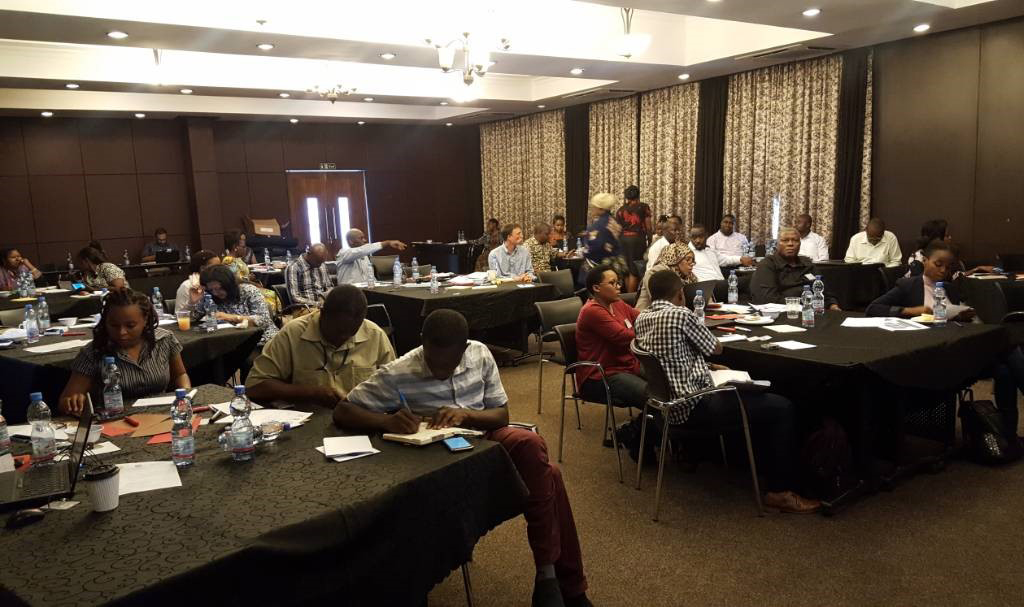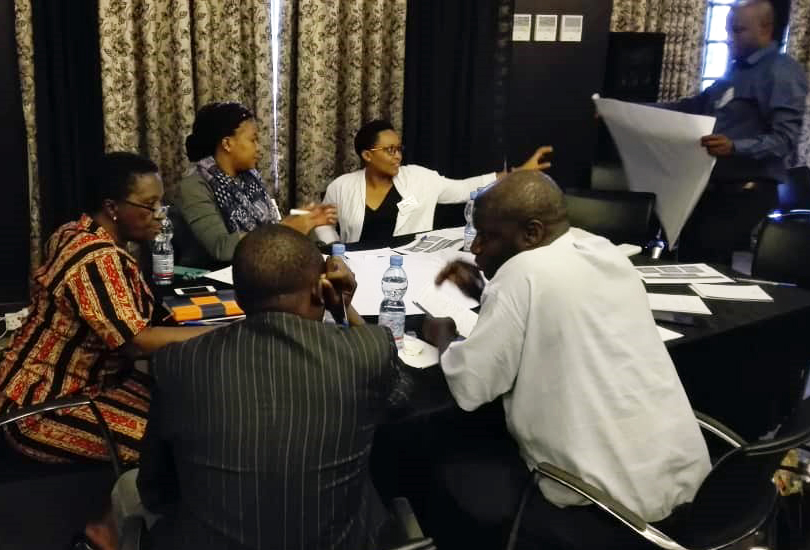Building an equitable and sustainable health market

With support from SHOPS Plus, Tanzania held its first workshop focused on creating an equitable and sustainable market for health products and services in May 2018. The project has been working with the country’s government, donors, and private organizations to make a total market approach an accepted and widely used practice in HIV and family planning programs since December 2017. This strategy addresses concerns over Tanzania’s dependency on donated commodities, the weak targeting of donated and subsidized products, and the lack of opportunities for commercial and social enterprises to grow their market share.
The project aims to influence policy change at the national level. Its efforts are backed by key government institutions, the National AIDS Control Program (NACP), and the Reproductive and Child Health Services (RCHS) program.
Sustaining a market for condoms
Following the announcement of a very large donation of condoms by the Global Fund to the government of Tanzania, SHOPS Plus has advocated with the NACP, the Tanzania Commission for AIDS (TACAIDS), and the Global Fund Coordinator to consider the total market when programming donated condoms. SHOPS Plus helped form a committee that includes USAID (through the project), TACAIDS, UNFPA, and UNAIDS. Each member is responsible for convening a subset of stakeholders from the public and private sectors as needed.
In May, SHOPS Plus collaborated with the committee to hold a three-day workshop that brought together all relevant stakeholders to discuss TMAs for condoms. Francoise Armand, senior private sector advisor for the project, presented at the workshop, and later at a Development Partners Group meeting for AIDS. The project also hosted a four-day orientation workshop for NACP staff. The content delivered at the workshop will be published in a forthcoming manual. SHOPS Plus is also conducting a national condom retail audit and qualitative research that will shed light on the availability and market share of private condoms brands, as well as the sourcing patterns of condom users from different socio-economic and age groups.

The total market for family planning
SHOPS Plus has also collaborated with UNFPA and the Reproductive Health Supplies Coalition to incorporate total market approaches in family planning policy and programming. In June, the project used tables from the Demographic and Health Survey to demonstrate the need to address commodity security in Tanzania at the Family Planning Working Group meeting. It is also providing inputs into the National Family Planning Costed Implementation Plan draft to ensure that Tanzania’s overall family planning strategy incorporates a total market approach. Later this year, the project will conduct a market segmentation study to support the launch of a strategy for family planning commodities and services based on a total market approach.
TMA defined
A total market approach is a lens through which the comparative advantages and complementary roles of all sectors of the market are considered and supported in order to foster long-term, equitable, and sustainable delivery of health information, products and services to all market segments or population groups who want to use them. As part of this approach, SHOPS Plus conducts market segmentation analyses, supports government and private sector actors to consider market data when making procurement decisions, and strengthens collaboration and dialogue across sectors.